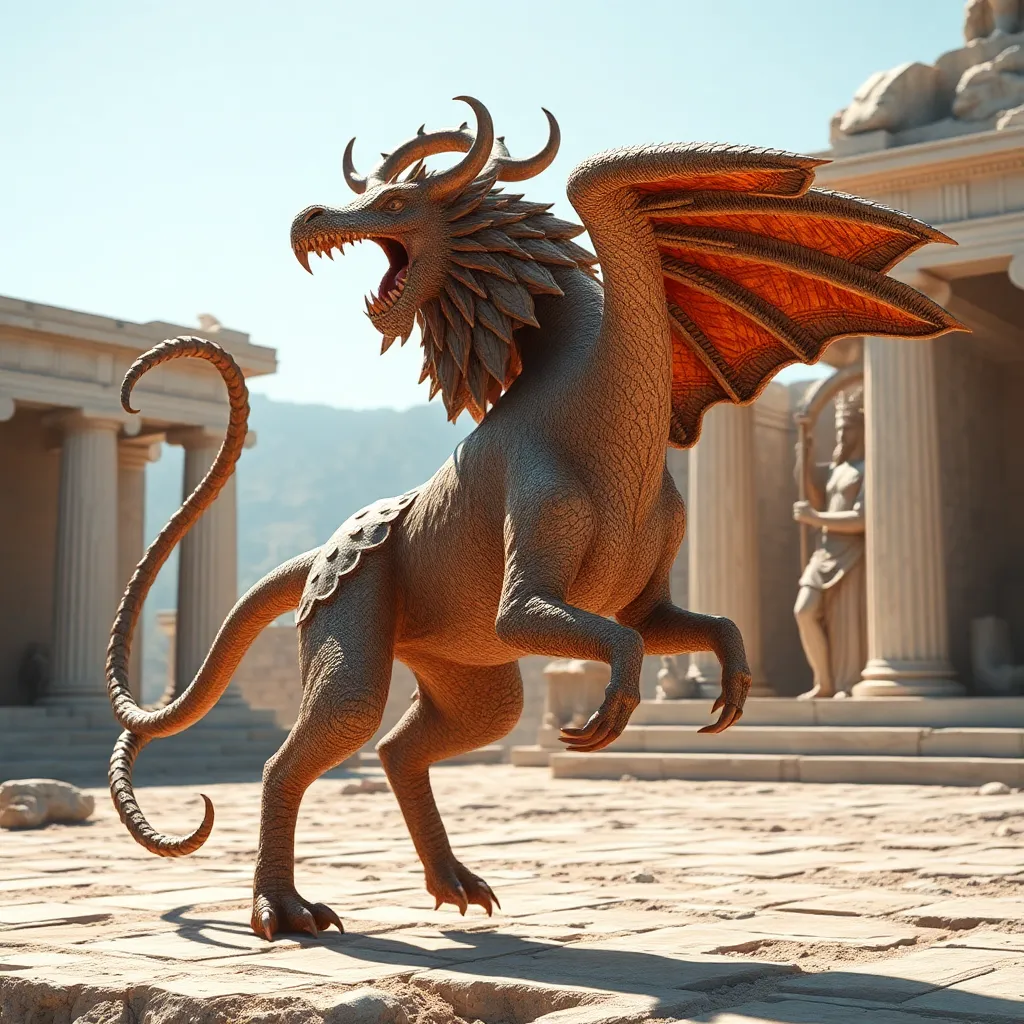The Role of Mythological Creatures in Greek Mythological Adaptations
I. Introduction
Greek mythology is a rich tapestry of narratives, deities, and mythological creatures that have shaped the cultural and artistic landscapes of Western civilization. These stories, passed down through generations, not only reflect the beliefs and values of ancient Greek society but also offer timeless lessons that resonate across ages.
Mythological creatures, in particular, play a crucial role in these narratives. They embody complex themes, serve as antagonists or allies to heroes, and symbolize various human experiences and emotions. This article aims to explore the significance of these creatures in Greek mythology, their historical context, and how they have been adapted in literature and modern media.
II. Historical Context of Greek Mythology
The origins of Greek mythology can be traced back to the ancient Greeks, who used myths to explain natural phenomena, human behavior, and cultural practices. Over centuries, these myths evolved, influenced by historical events, cultural exchanges, and societal changes.
- Origins and evolution: Greek mythology began as oral traditions, with stories evolving as they were passed down, often being adapted to reflect contemporary issues.
- Cultural influences: Myths were shaped by the environment, politics, and daily life, intertwining with religious beliefs and rituals.
- Oral tradition: Storytelling was central to the preservation and dissemination of myths, with poets like Homer and Hesiod playing pivotal roles in cementing these tales into Greek culture.
III. Iconic Mythological Creatures
Among the myriad of mythological creatures in Greek mythology, several stand out due to their unique characteristics and pivotal roles in the narratives.
- Medusa: A Gorgon with snakes for hair, Medusa symbolizes danger and transformation. She is often portrayed as a tragic figure, cursed for her beauty.
- Cyclopes: These one-eyed giants represent brute strength and craftsmanship. They are known for forging Zeus’s thunderbolts, showcasing the blend of power and creativity.
- Minotaur: A creature with the body of a man and the head of a bull, the Minotaur embodies the theme of duality and the struggle between civilization and savagery.
These creatures are not mere embellishments in stories but serve as integral components that drive the narrative and reflect deeper themes within the mythology.
IV. Adaptations in Literature
Greek myths have been chronicled in numerous ancient texts, with writers such as Homer and Hesiod laying the groundwork for future adaptations. These stories have continued to inspire writers throughout history.
- Ancient texts: Works like “The Iliad” and “The Odyssey” showcase mythological creatures and their interactions with gods and heroes, setting a foundation for literary exploration.
- Influence on later adaptations: The themes and characters from Greek mythology have been reinterpreted by authors like Ovid and Apollonius, who infused their works with new perspectives.
- Case studies: Ovid’s “Metamorphoses” offers a retelling of various myths, transforming the understanding of characters like Narcissus and transforming the narrative into a commentary on change and identity.
V. Mythological Creatures in Modern Media
The influence of mythological creatures extends into modern media, where they are represented in films, television shows, and video games, often reimagined for contemporary audiences.
- Film representations: Movies such as “Clash of the Titans” and “Immortals” visually depict Greek myths, bringing creatures to life with cutting-edge special effects.
- Contemporary adaptations: The “Percy Jackson” series introduces younger audiences to Greek mythology, blending adventure with educational elements about the myths.
- Impact of visual storytelling: The use of visual media has changed the perception of mythological creatures, making them more relatable and accessible to modern viewers.
VI. Thematic Significance
Mythological creatures often embody significant themes that reflect human experiences, such as fear, transformation, and the struggle between good and evil.
- Themes represented: Creatures like the Hydra symbolize fear and the challenges one must face, while others, like the Phoenix, represent rebirth and transformation.
- Reflections of human experience: These characters mirror human emotions, struggles, and triumphs, allowing audiences to connect with the stories on a personal level.
- Evolving themes: Modern adaptations continue to explore these themes, often placing creatures in new contexts that resonate with contemporary societal issues.
VII. Cultural Impact and Reinterpretation
Mythological creatures have permeated popular culture, influencing everything from literature to fashion, and their reinterpretation has led to a broader understanding of Greek mythology.
- Role in popular culture: Mythical figures appear in art, literature, and even advertising, showcasing their versatility and relevance.
- Modern reinterpretations: Adaptations often reinterpret traditional myths, making them more relatable or aligning them with contemporary values.
- Influence on society: These adaptations can reshape societal perceptions of mythology, making ancient stories feel fresh and applicable to modern life.
VIII. Conclusion
The significance of mythological creatures in Greek mythology extends far beyond their narrative roles; they embody complex themes and human experiences that continue to resonate today. Through adaptations in literature and modern media, these creatures have evolved while maintaining their core symbolism.
As Greek mythology endures in contemporary culture, the study of these adaptations offers valuable insights into the ways in which ancient narratives can inform and enrich modern life. Future explorations of mythological adaptations will undoubtedly continue to reveal new interpretations and meanings, ensuring that the legacy of Greek mythology remains vibrant and relevant.




